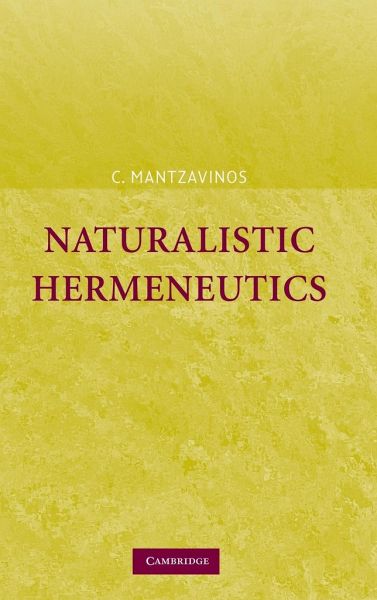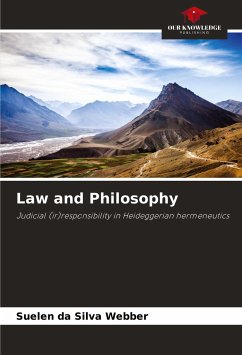
Naturalistic Hermeneutics
Versandkostenfrei!
Versandfertig in 1-2 Wochen
109,99 €
inkl. MwSt.
Weitere Ausgaben:

PAYBACK Punkte
55 °P sammeln!
Naturalistic Hermeneutics, first published in 2005, proposes the position of the unity of the scientific method and defends it against the claim to autonomy of the human sciences. Mantzavinos shows how materials that are 'meaningful', more specifically human actions and texts, can be adequately dealt with by the hypothetico-deductive method, the standard method used in the natural sciences. The hermeneutic method is not an alternative method aimed at the understanding and the interpretation of human actions and texts, but it is the same as the hypothetico-deductive method applied to meaningful...
Naturalistic Hermeneutics, first published in 2005, proposes the position of the unity of the scientific method and defends it against the claim to autonomy of the human sciences. Mantzavinos shows how materials that are 'meaningful', more specifically human actions and texts, can be adequately dealt with by the hypothetico-deductive method, the standard method used in the natural sciences. The hermeneutic method is not an alternative method aimed at the understanding and the interpretation of human actions and texts, but it is the same as the hypothetico-deductive method applied to meaningful materials. The central thesis advocated by Mantzavinos is, thus, that there is no fundamental methodological difference between natural sciences, social sciences, and humanities. Advanced students and professionals across philosophy, social and political theory, and the humanities will find this a compelling and controversial book.














